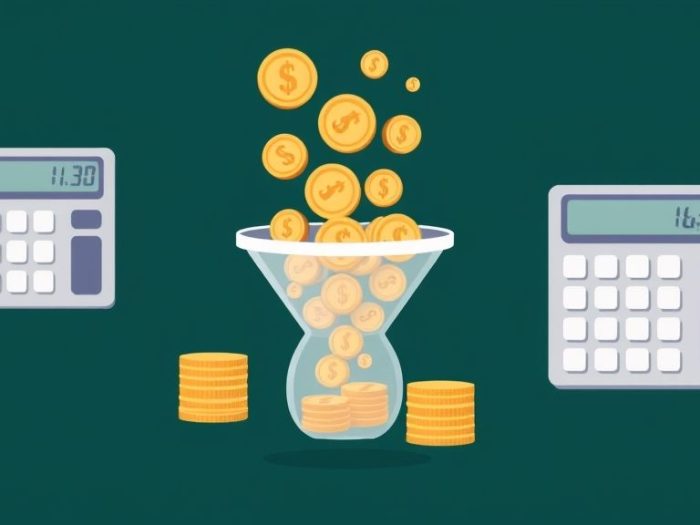Taxes can significantly impact your investment returns. Understanding how different
investments are taxed and using investment tax calculators can help you maximize your
after-tax returns and achieve your financial goals more effectively. This article
explores how to use investment tax calculators and implement tax-efficient
investment strategies.
Understanding Investment Taxes
Different types of investment income are taxed differently:
-
Ordinary Income: This includes interest income from bonds or savings
accounts and short-term capital gains (assets held for one year or less). It’s
taxed at your ordinary income tax rates. -
Qualified Dividends: Dividends from stocks that meet specific
requirements are taxed at lower capital gains rates. -
Long-Term Capital Gains: Profits from selling assets held for more
than one year are also taxed at capital gains rates.
Why Use Investment Tax Calculators?
Investment tax calculators help you:
-
Compare Investments: Evaluate the after-tax returns of different
investment options. - Optimize Strategies: Develop tax-efficient investment strategies.
- Plan for Taxes: Estimate your tax liability and plan accordingly.
How to Use Investment Tax Calculators
Here’s a general guide on using these calculators:
1. Input Investment Details
Enter the following information:
-
Investment Type: Select the type of investment (e.g., stock, bond,
mutual fund). - Purchase Price: The price at which you bought the asset.
-
Sale Price: The price at which you plan to sell or project to sell
the asset. - Holding Period: The length of time you plan to hold the asset.
- Tax Bracket: Your federal and state income tax brackets.
-
Dividend Information: If applicable, enter dividend amount and
frequency.
2. Calculate Capital Gains or Losses
The calculator will calculate the capital gain or loss:
Capital Gain/Loss = Sale Price – Purchase Price
3. Determine Tax Rate
The calculator will determine the appropriate tax rate based on:
- Holding period (short-term or long-term)
- Tax bracket
- Dividend qualification (for dividends)
4. Calculate Tax Liability
The calculator will estimate your tax liability:
Tax Liability = Tax Rate * Capital Gain/Loss (or Dividend Amount)
5. Calculate After-Tax Return
The calculator will calculate your after-tax return:
After-Tax Return = (Investment Gain – Tax Liability) / Initial Investment
Tax-Efficient Investment Strategies
Use the insights from investment tax calculators to implement these strategies:
-
Tax-Loss Harvesting: Sell losing investments to offset capital
gains. -
Asset Location: Hold tax-inefficient investments (e.g., bonds) in
tax-advantaged accounts (e.g., IRAs). - Qualified Dividends: Invest in stocks that pay qualified dividends.
-
Long-Term Investing: Hold assets for longer than one year to qualify
for lower long-term capital gains rates.
Where to Find Investment Tax Calculators
You can find investment tax calculators online through:
- Financial websites (e.g., NerdWallet, Bankrate)
- Brokerage firms
- Tax software providers
Important Disclaimer
I am an AI and cannot provide financial or tax advice. Tax laws are complex and
can change. Always consult with a qualified financial advisor or tax professional
for personalized guidance.
Conclusion
Understanding the tax implications of your investments and using investment tax
calculators can significantly improve your after-tax returns. By implementing
tax-efficient strategies, you can maximize your wealth accumulation and achieve
your financial goals more effectively.
Related Keywords
Investment tax calculator, after-tax return calculator, capital gains tax
calculator, dividend tax calculator, investment tax strategies, tax-efficient
investing, tax-loss harvesting, asset location, qualified dividends, long-term
capital gains.
Frequently Asked Questions (FAQ)
1. How is ordinary income from investments taxed?
Ordinary income from investments, such as interest income, is taxed at your
ordinary income tax rates.
2. What are qualified dividends?
Qualified dividends are dividends from stocks that meet certain requirements
and are taxed at lower capital gains rates.
3. How are long-term capital gains taxed?
Long-term capital gains, from selling assets held for over one year, are
taxed at capital gains rates, which are generally lower than ordinary income
tax rates.
4. What is the purpose of an investment tax calculator?
Investment tax calculators help you compare investments, optimize tax
strategies, and plan for your tax liability.
5. What information do I need to use an investment tax calculator?
You’ll typically need the investment type, purchase price, sale price,
holding period, tax bracket, and dividend information (if applicable).
6. How is capital gain or loss calculated?
Capital gain or loss is calculated as: Sale Price – Purchase Price.
7. What factors determine the tax rate on investment income?
The tax rate depends on the holding period, your tax bracket, and whether
the income is ordinary income, qualified dividends, or capital gains.
8. What are some tax-efficient investment strategies?
Tax-efficient strategies include tax-loss harvesting, asset location,
investing in qualified dividends, and long-term investing.
9. Where can I find investment tax calculators?
Investment tax calculators are available on financial websites, brokerage
firm platforms, and tax software providers.
10. Should I consult a tax professional for investment tax advice?
Yes, consulting a qualified tax professional is highly recommended for
personalized guidance, as tax laws are complex and can change.



